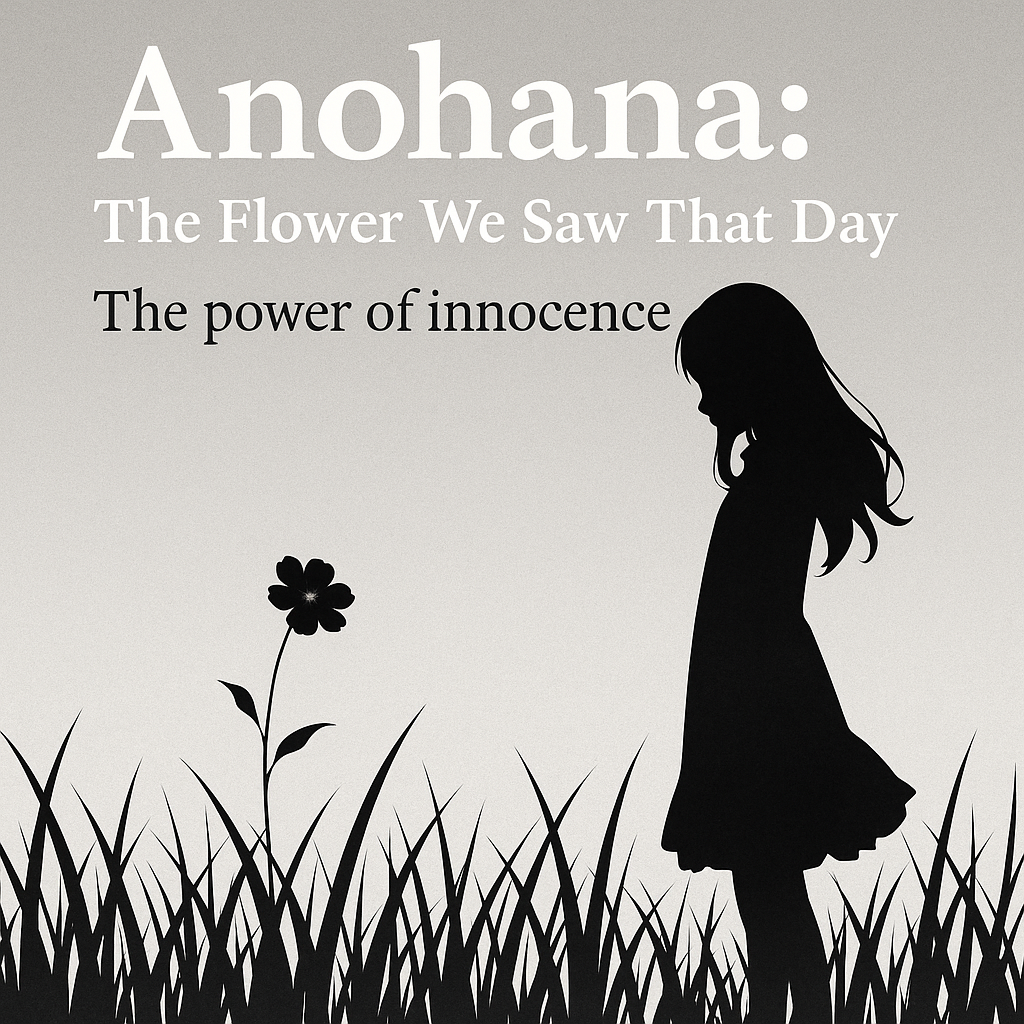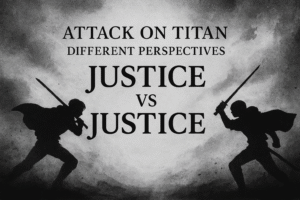When was the last time you truly laughed from the heart?
Back when we were kids, all it took to spend time with someone was a simple reason: “Because it’s fun.” That was enough.
But as we grow older, our relationships become conditional.
Status, position, appearances, benefits—
Our feelings are often overshadowed by social expectations.
At some point, we lose sight of our true emotions. And everything begins to feel… heavy.
But Anohana: The Flower We Saw That Day gently reminds us—
of the feelings we’ve forgotten.
⸻
Chapter 1: Why Do Relationships Change As We Grow Up?
In adult life, human interaction operates under invisible rules:
• “He’s a senior executive.”
• “She’s an industry insider.”
• “If I disagree, it might hurt my reputation.”
• “Better read the room before I speak…”
We start building relationships based on titles, roles, and politics—
not feelings.
Before we realize it, even our reasons for being with someone shift from “I like this person” to “It makes sense socially.”
Have we left behind that simple truth—that being with someone just because you enjoy their company is reason enough?
⸻
Chapter 2: Childhood Was Simpler
In Anohana, the childhood group known as the “Super Peace Busters” stayed together because they were friends—because it was fun.
• If someone cried, they were worried.
• If someone struggled, they wanted to help.
They didn’t need reasons. Emotions were everything.
We all had a time like that.
Buying cheap candy after school, laughing in the park until the sun set—
It wasn’t much, but it filled our hearts completely.
⸻
Chapter 3: Why Is It So Hard to Be Honest as an Adult?
Maybe growing up means learning how to suppress things.
Reading the room.
Avoiding friction.
Getting by without causing waves.
That’s survival in society.
But in doing so, we often abandon something precious: our true voice.
• “This is the safest thing to say.”
• “I don’t want to be disliked, so I’ll just agree.”
• “If I say something logical, they can’t argue.”
Over time, even we can’t hear our own feelings anymore.
⸻
Chapter 4: What Anohana Taught Me About the Power of Honesty
The characters in Anohana reunite as adults.
Once, they were the closest of friends—now, they speak awkwardly, avoiding the past.
But when they finally gather the courage to speak their truths,
something shifts.
Tears.
Shaky voices.
Words they had buried for years—
They begin to reconnect.
It’s that honesty, no matter how painful or clumsy, that makes Anohana unforgettable.
⸻
Chapter 5: In This Superficial Age, Let’s Try Real Connection Again
In a world full of surface-level social media connections,
it’s getting harder and harder to connect from the heart.
We communicate through likes, stickers, and short replies.
It’s hard to know how someone really feels.
But the beauty of social media is that you can reach out easily.
Even a single message can reconnect something once lost.
⸻
☎️ Have You Reached Out to an Old Friend Lately?
There was a close friend I had in high school.
After entering adulthood, we stopped meeting, even stopped talking.
I told myself:
“It’s been too long.”
“We live in different worlds now.”
But after watching Anohana, I sent a simple message:
“How have you been?”
He replied immediately:
“It’s been forever!”
When we finally met, it was like nothing had changed.
He told me, “You’re still the same as back then.”
And in that moment, I realized: some bonds never truly disappear.
⸻
🎐 Conclusion: The Original Meaning of Connection
In this complicated world of social dynamics,
real connection—the kind built on honesty—is more precious than ever.
Anohana gently brings back those forgotten feelings:
The pure heart we had as children.
The openness. The simplicity.
That part of us still lives inside.
We just have to listen for it.
⸻
💭 A Final Thought for You
Try remembering someone you used to be close with.
A shared laugh. A quiet walk. A silly moment.
And maybe… send them a message.
Sometimes, all it takes is a single, honest word—
to reconnect with someone,
or maybe even with yourself.

